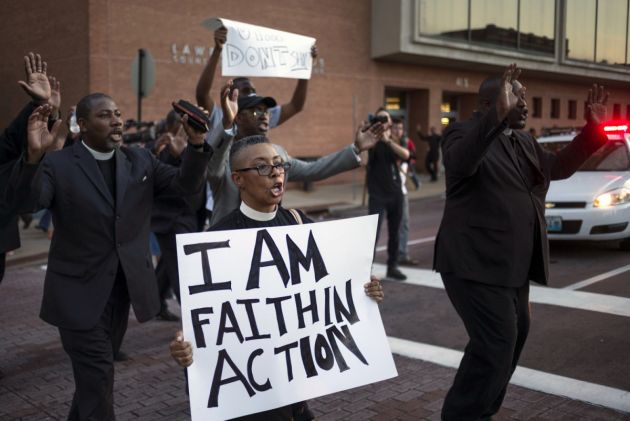Evangelicals among least likely to believe US police unfairly target people of color: Survey

A slim majority of Americans agree that police unfairly target people of color and other U.S. minority groups, a survey made this year before last week's fatal shooting of two black men by police and the subsequent killing of five Dallas police.
The Barna Group said July 14 that last week's shootings have reinvigorated the debate over police brutality and racial tension in America.
"As a research company, one of Barna's key functions is to contribute reliable data that equips leaders to accurately describe and interpret cultural trends," Barna said.
In April 2016, as part of a larger study it is conducting on social values, Barna's team collected public opinion data on perceptions of police brutality.
The research group said it is making that research available to offer context into what Americans told it about the topic.
Barna found that more than half of all adults (53 percent) either somewhat or strongly agree with the statement that police unfairly target people of color and other U.S. minority groups.
At the same time four in 10 either somewhat or strongly disagree, while 7 percent admit they are not sure.
QUESTIONS ON POLICE BRUTALITY
In the nationwide survey of American adults, respondents were asked two questions related to the subject of police brutality.
The first question gauged how strongly American adults agree or disagree with the following statement: "The police unfairly target people of color and other minority groups."
A tiny majority of Americans agree that police unfairly target people of color and other minority groups.
More than half of all adults (53 percent) either somewhat or strongly agree with the statement, four in 10 (40 percent) either somewhat or strongly disagree, while 7 percent admit they are not sure.
The second question looked specifically at personal experience, asking respondents whether they personally live in fear of police brutality.
Most (78 percent) say they either probably or definitely do not live in fear of police brutality, while more than one in five Americans say they either absolutely (7 percent) or possibly do (15 percent).
The deepest divides though, for both questions, Barna found exist among generation, ethnicity and religion.
When it comes to faith, evangelicals stand out from national norms. Overall, only 29 percent of evangelicals believe police unfairly target people of color.
All other faith segments in America stand in contrast to this. Half or more believe this to be the case, including non-evangelical born again Christians (49 percent), notional Christians (50 percent), adherents to other faiths (59 percent), and those who are atheists and agnostics (67 percent).
When it comes to matters of faith engagement, practicing Christians are about as likely as unchurched adults (48 percent against 54 percent, respectively) to believe police unfairly target minorities.
Overall, about 12 percent of evangelicals say they personally feel threatened by police, which is about half the rate of those from other faith groups or those who align with no faith.
Looking at the differences between white born again Christians versus non-white born again Christians, the differences were striking.
Only a quarter of white born-again adults (24 percent) believe police unfairly target people of color, compared to more than eight in 10 (82 percemt) non-white born again adults.
It's a similar story when it comes to living in fear of police brutality (5 percent of white born-again compared to 34 percent of non-white born again Christians).
"These findings represent a challenging reality for evangelicals and their leaders," says David Kinnaman, president of Barna and director of the study.
"Huge gaps exist between most evangelicals and tens of millions of Americans - gaps in perception about the extent and proximity of prejudicial law enforcement.
"The different levels of opinion help to explain why people feel such varying states of urgency about the issue.
"To help evangelicals grapple with the problems of implicit racial bias, Christian leaders must come to realize how deeply and personally experienced these problems are for so many in society and in the church."